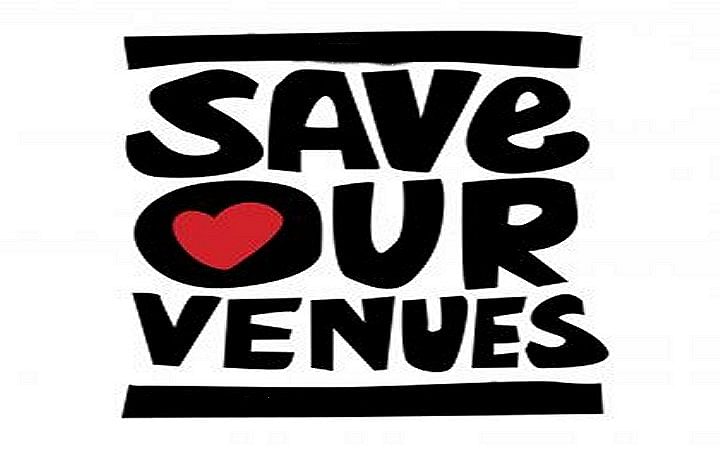
If you are reading this, I'll assume you have spent some significant time of your life going to see live shows in small clubs. I'll also assume you are aware that COVID and other factors (I'm not going to go into a long rant about the problems of late-stage capitalism and rampant hyper-gentrification, I promise) have forced a significant number of small venues to shutter their doors. From New York to Newcastle, from Marseilles to Melbourne -- the last decade has seen closures worldwide. So wherever you live, you are not alone in suffering from this pandemic.
And speaking of "worldwide," DJ and record label owner (Brownswood Records) Gilles Peterson has just dropped an op-ed in the Guardian today with the headline: "How can we save British nightlife from collapse? Look to Germany – and its football" where he ponders possible solutions to this issue that is worth reading.
About a quarter century ago, KCRW radio in Los Angeles, began airing the syndicated version of Peterson's program Worldwide that aired on BBC1 and later BBC6. That program remains a weekly masterclass in exposing me to so much great music I would never have discovered anywhere -- from Jazzanova to Quantic (aka Will Holland), always, as he notes "connecting the dots." And of course, his many superb compilation CD's were just stuck in my CD player on constant rotation.
So if Gilles has an idea for how to save music venues, I'm all ears.
The worry, of course, is that if these kinds of spaces disappear, we will end up with performances and DJ sets that all sound the same in places that all look the same, and where homogeneity becomes the status quo. The same sort of flattening of nuance is often levelled at algorithmically driven music discovery. And if this happens, we lose the joy of the unexpected find; the moment where you turn to the person next to you and laugh – what the jazz critic Whitney Balliett used to call “the sound of surprise”.
And that is why I think we should collectively work to preserve this special corner of our national makeup and fight against it fizzling out. The only way to do that is to open those spaces up and create access so that individuals can experience it for themselves. But to do that we also need to challenge some of the economic assumptions that govern these spaces.
I'd suggest reading the whole article to see what he has to say here. I don't know if what he is suggesting is doable on a global scale, and there are a lot of community-based groups that have formed in cities around the globe that are trying to address this issue in various ways. But without a doubt, something needs to happen. Small venues are incubators of not just new musicians, but new music. It would be great of the music industry collectively decides to tackle this issue, but there doesn't seem to be any real push on that end. But at the same time, because of this dearth of venues, there is already a generation out there for whom going to see live music is not seemingly an important part of their lives. (Again, I'm not going to go into a rant about the internet and dwindling attention spans, or even the decline of music education in schools, but while all that is part of the problem, it doesn't really help in bemoaning all this when the focus should be on solving the problem.)
As I urge at the end of each episode, one of the best ways to support the artists featured in this series is to go see them play live, but really if you just go out one night a week to catch a live act -- hey, if you can't stay up late, go find a happy hour show -- you are helping to fight this pandemic. Support you local venue, support you local artist.
And if you have some better ideas, go out and gather your neighbors and friends and community leaders and pitch it. Let's not let live music venues be something we've relegated to the past.
Anyways, some food for thought.....
If you are unfamiliar with Gilles Peterson, let this be an little introduction to his world. Gilles has created this Spotify playlist from some music he's featured on his radio program.


